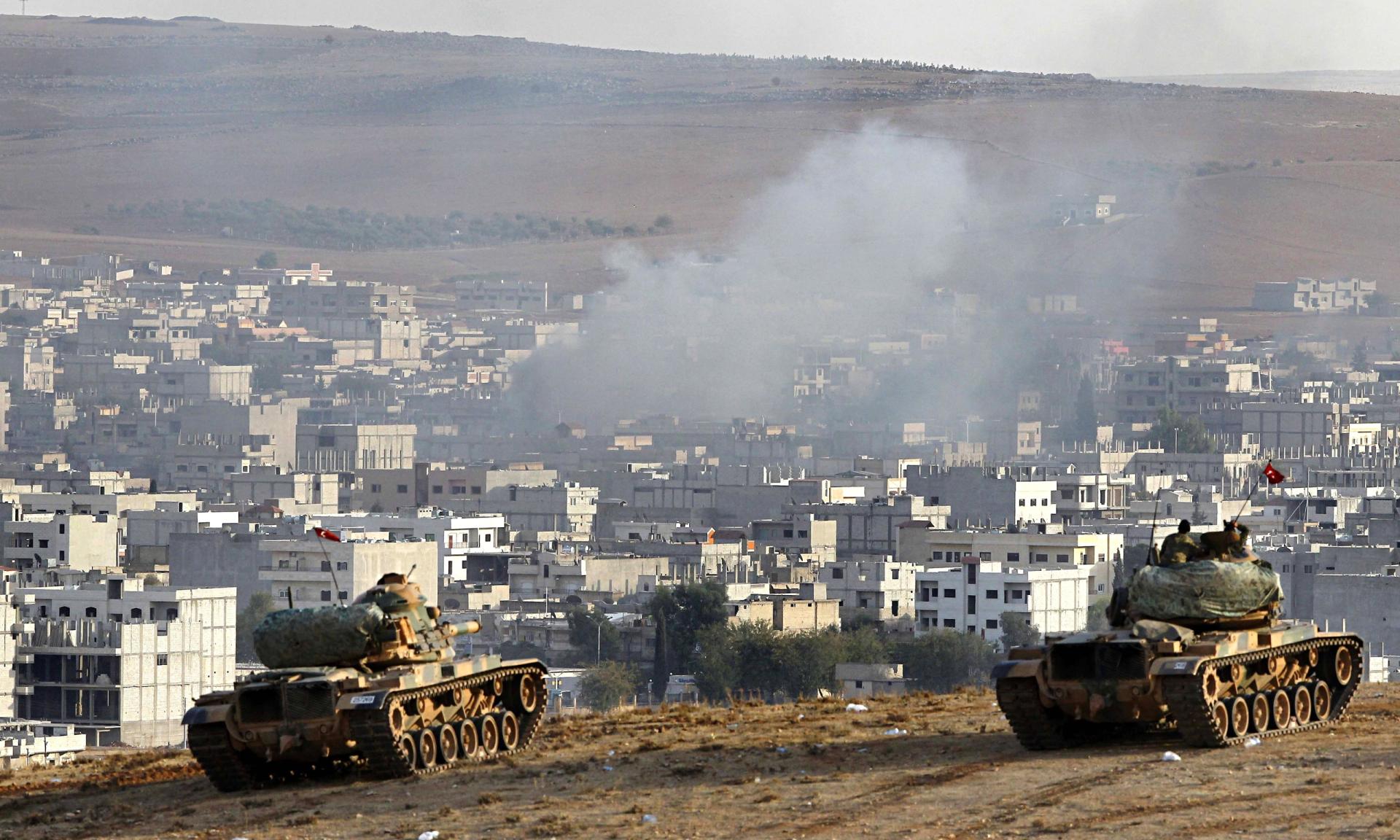WASHINGTON: Anti-Islamic State of Iraq and the Levant forces have made significant gains in northern Syria, which will have positive effects in Iraq as well, a senior U.S. Central Command official said today.
During a telephone conference from Southwest Asia with Pentagon reporters, Combined Joint Task Force-Operation Inherent Resolve Chief of Staff Marine Corps Brig. Gen. Thomas D. Weidley provided operational updates on coalition and anti-ISIL force efforts in Iraq and Syria.
Closing a Gap
Weidley said the latest operational developments in Syria are focused on the gains anti-ISIL forces have made in northern Syria.
“These anti-ISIL forces,” he said, “which [comprise] ethnic Syrian Kurds, Arabs, Turks and non-Kurdish Christians among others, have been making significant gains against [ISIL] for months, including expelling [ISIL] from Kobani and from the Tel Hamis pocket in northeast Syria.”
Weidley said anti-ISIL forces have been conducting operations since early May to close the gap between the two areas.
These efforts, the general said, culminated earlier in the week with ISIL retreating from the Tel Abyad border crossing and abandoning terrain equivalent to “82 times the size of Ramadi — roughly 4,100 square kilometers.”
“These gains,” Weidley said, “have severed multiple primary and secondary lines of communication in the [ISIL]-dominated territory as well as east-west lines of communication across northern Syria towards Iraq.”
These developments will further constrict ISIL mobility, supply, sustainment and communications within Syria, he said, and will have positive effects for the Iraq portion of the campaign as well.
Iraq Operational Updates
Weidley also discussed the deployment of coalition forces to eastern Anbar Province, adding that the new advise-and-assist and tribal engagement platforms are an extension of existing platforms in Iraq.
“Like existing coalition forces in Iraq,” he said, “these elements partner with the [Iraqi security forces’] operational-level headquarters and tribal leaders to coordinate, integrate and synchronize the unique capabilities that the coalition brings with the operations being conducted by these Iraqi command and leadership nodes.
“We had a good tribal ceremony at this location on Wednesday, in which 500 Sunni tribal fighters attended and were inducted into the Popular Mobilization Forces, including pay and arms,” Weidley added.
Beiji Update
The general said Iraqi security forces and PMF are making steady progress as they increase their footholds in and around Beiji.
“PMF elements are conducting clearing operations within the urban areas,” he said, “and are making measured progress despite a large number of [improvised explosive devices].”
The general said ground forces continue to hold their positions despite small-scale ISIL attacks that include mobile suicide bombs aiming to disrupt security force and PMF efforts.
“The [Iraqi security forces] located at the Beiji Oil Refinery [are] benefitting from reinforcement and resupply capabilities through the line of communication from the south, which the Iraqis have been able to sustain since the last week of May,” Weidley said.
“The fighting continues in and around Beiji and many of the portions of the area remain contested,” the general continued. “The [Iraqi security forces] and PMF both report solid progress toward their objectives, so efforts continue in the right direction.”
Weidley said the coalition has conducted numerous air strikes in ISIL support zones located in Huwayjah, Sharkat, and along the Tigris River to the north, including Mosul. “This interdiction has resulted in significant disruption to [ISIL] support to Beiji,” he said.
Ramadi Update
Weidley said he is encouraged by the activities of Iraq’s government, which are setting the stage for a future counterattack in Ramadi.
“Great efforts have been made in advancing organizational, and command and control changes that will facilitate success in future operations,” he said.
Weidley said the coalition views this as a positive step, as the situation in Ramadi is “probably best described as anticipatory,” from both an Iraqi security force and ISIL perspective.
Although ISIL forces continue to prepare their defenses within Ramadi, he said, Iraqi forces are conducting shaping operations and working towards the city’s liberation.
The general described numerous ongoing “shaping” activities, such as securing logistical lines of communications, securing t-road junctions, intersections, key terrain, establishing logistics areas, finalizing planning, rehearsals, preparing equipment and collecting intelligence.
These shaping operations will set the conditions for follow-on operations, Weidley said.









